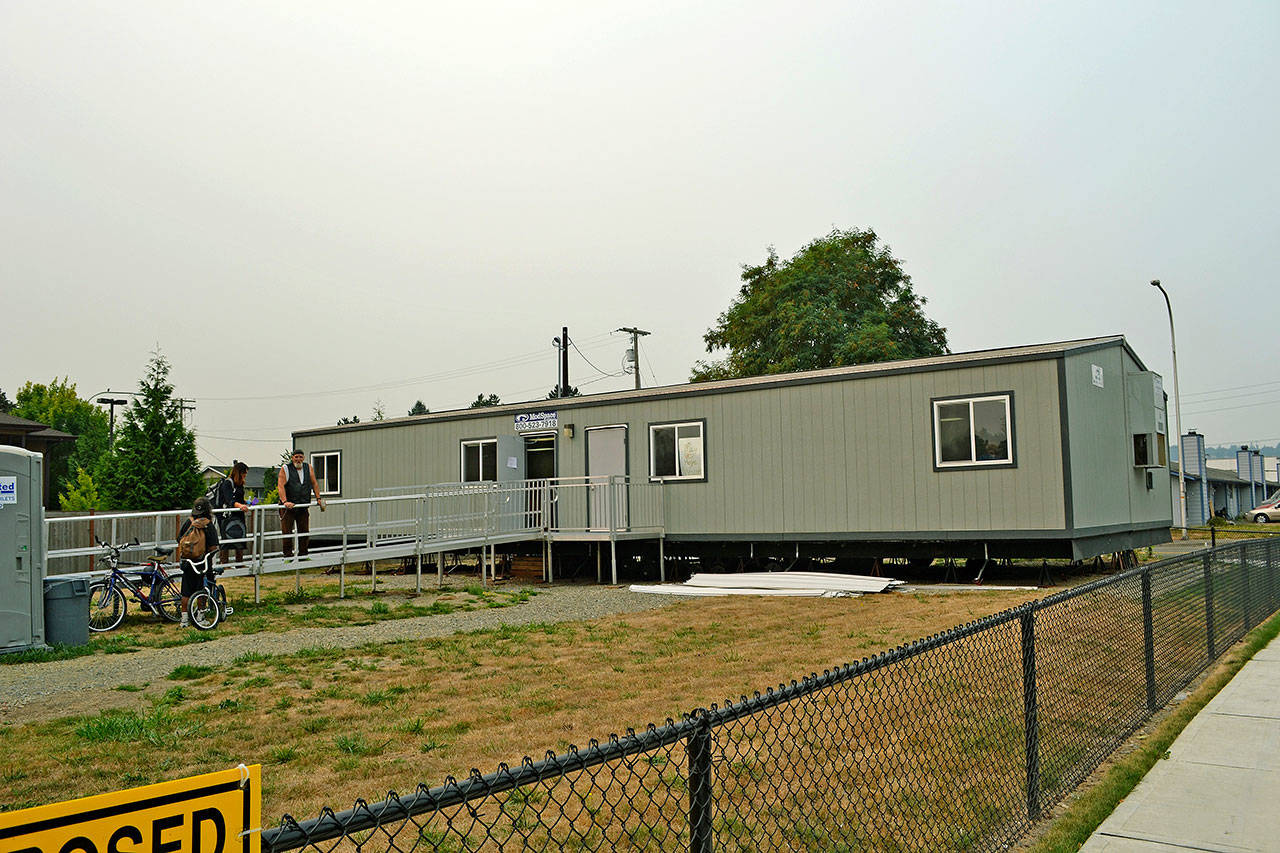Providing more shelter for homeless people in Auburn was the top action item to come out of the Mayor’s Task Force on Homelessness when it finished its work in April 2016.
The City of Auburn seized that recommendation, and ran with it.
Last Monday, in partnership with Valley Cities and the Auburn Food Bank, the City opened the “Ray of Hope” center on a lot Valley Cities has donated temporarily at 2536 I St. NE.
“We have waited for ‘someone’ for a very long time who has felt that ‘they’ should get a day center started for our homeless population,” said Debbie Christian, director of the Auburn Food Bank. “We have no idea who this ‘someone or they’ are that everyone talks about – but we finally decided if ‘someone’ wasn’t going to make it happen – perhaps we would.”
The food bank is providing staff, food and resource connections for the day-sheltering operation, and Puget Sound Energy is providing power. Valley Cities will not only provide the use of its Common Building to provide nighttime services beginning sometime in October, but it has also reallocated its outreach worker staff to support shelter clients.
The center is to remain open for a year and a half while the City works with agencies, private funders and regional partners to create more housing and affordable housing options in Auburn. Meanwhile, the City will continue to work closely with its regional partners to find stable, permanent housing for the homeless in Auburn.
Critical for homeless folk who are trying to get back on their feet, get a job, find permanent housing, they can step out of the center and see WorkSource and the Department of Social and Health Services directly across the street.
“People coming through have been glad; they feel like maybe there’s someone or something that’s going be able to help them move forward,” Christian said. “We tell them that, even though it’s open, it’s going to be a slow process. You almost need several months of a job behind you before you can get into housing.
“If we can give them hope for finding a way out of their current lifestyle,” Christian continued, “that’s a huge benefit for them, that ‘maybe something can happen for me.’ And that’s one of the things we hear a lot, even just in families coming to the food bank: that sometimes you can be so far down, you don’t even have hope left.”
Dana Hinman, administrative director for the City of Auburn, said the effort energized a wide swath of City staff, who had conversations with Catholic Community Services and WorkSource about the operational plan to provide not only sheltering but wrap-around services at the site.
“It’s essentially answering an outcry from the community that our homeless population needs some sort of resource to be able to be lifted out of their current condition,” Hinman said. “The partnership with Valley Cities and the Auburn Food Bank – two of our most expert nonprofits – in working with our homeless population was just a perfect marriage of government and nonprofit.”
While the shelter should be able to handle 35 occupants at a time, in the first week it saw a total of 18 people. The operating days are Monday to Friday, but the City intends to expand the times to seven days a week.
The Mayor’s Task Force on Homelessness was composed of community leaders, police and fire, the school district, service providers, residents, members of the faith community, police and fire, the Muckleshoot Indian Tribe, business owners and key City staff. The task force sought to better understand the scope and causes of homelessness in Auburn, the systems in place to address homelessness and considered the range of concerns and ideas the community identified.


